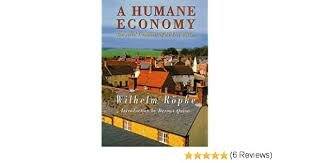There is a reason why Jesus describes the way of salvation as a narrow gate. In Matthew 7:13–14, Jesus said, “Enter by the narrow gate. For the gate is wide and is easy that leads to destruction, and those who enter by it are many. For the gate is narrow and the way is hard that leads to life, and those who find it are few.”
We are always pulled between at least two directions—sometimes they are temptations—neither of which honors God. Our task is to thread the needle, which we can only do with Jesus’ help.
So, if you are in the camp of people that believe sin is no big deal because you’ve signed a special deal with God by praying a prayer or whatever, this passage is for you. In Matt 18:8–9, Jesus teaches here that sin is so significant that physical deformation and suffering in this life is better than the natural outcome of sin.
But, if you are in the group of people who believe your sin is so huge that nothing could ever take care of it, then we’ll get to the joyous good news of the gospel in just a minute, so hang on tight.
When Jesus speaks of cutting off a hand or gouging out an eye, he is being hyperbolic––he is exaggerating. He isn’t actually telling anyone to self-mutilate, but I think he is quite earnestly explaining how bad sin is. Jesus also isn’t telling his audience, in this case his disciples, that if they cut off an appendage, then they can stop the sin for which they deserve hell.
This begins to make sense when we consider how dangerous our sin is.
The Nature of Sin
In this passage, Jesus is really telling us that sin is bad. It’s really bad.
Herman Bavinck describes sin as,
“appallingly many-sided, with untold moral dimensions, at its heart it is a religious revolt against God and thus appropriately summarized as lawlessness. . . . Sin is never an arbitrary matter, merely a whimsical displeasure of a jealous God. Sin is knowingly breaking God’s command and flows from a heart that rebels against God.”[1]
Sin is both an actively corrupting force within in us and a negator of God’s goodness outside of us. Sin always takes God’s good creation and turns it away from God’s good purposes.
According to J. C. Ryle,
“Sin, in short, is that vast moral disease which affects the whole human race, of every rank, and class, and name, and nation, and people, and tongue; a disease from which there never was but one born of woman that was free.”[2]
Sin is all around us, within us, and inescapable in this life.
As we think about sin, sometimes we tend to think of it in terms of being an opposite power to good. As if there is a balanced evil and good powers, like Satan and God are duking it out, and we’re just waiting to see who will win. Sin and holiness are not like the light and dark side of the Force.
Instead, many teachers throughout Church history have explained sin as the absence of good. The Westminster Shorter Catechism states, “Sin is any want of conformity unto, or transgression of, the law of God.”
In his Enchirideon, Augustine writes, “For what else is that which is called evil but a removal of good? . . . For good to be decreased is evil.”[3] Therefore, when we choose to sin, we are choosing something less than the best thing available. To put it another way, we are redirecting something good from its proper course into a lesser one.
For example, sex was designed as a means of procreating and as a sign of the marriage covenant between a stable couple of the opposite sex. Sin has distorted that design in a million ways by directing it outward to images on a screen, to people not involved in the covenant, or in ways that could never fulfill the procreative type. Sex is a good thing that has been turned away from God’s good purposes in a way that distorts God’s good creation and takes away the blessings it provides.
The natural consequences of sin will always be destructive. Sin is always a tearing down of the gift that God has given us and trying to rebuild the world in our image and according to our own desires.
Again, Bavinck is helpful here: “Sin also develops an order dynamic; there is a law of sin that proceeds from suggestion to enjoyment to consent to execution and involves both our sensuality and our self-seeking.”[4]
The effects of sin are to weaken and darken the soul. John Owen notes,
“[Sin] is a cloud, a thick cloud, that spreads itself over the face of the soul, and intercepts all the beams of God’s love and favor. It takes away all sense of the privilege of our adoptions; and if the soul begins to gather up thoughts of consolation, sin quickly scatters them.”[5]
Adam’s original sin in defying God’s special command not to eat from a particular tree led to he and Eve being forced out of Eden and set this whole world into a tailspin of sin. God sent a flood to cleanse creation, which “was corrupt in God’s sight” (Gen 6:11), so he did something like a soft reboot of his creation. Pharaoh’s sin in resisting God’s command to let the Israelites go led to economic and physical misery and eventually the death of the first-born sons. Exodus, Leviticus, Numbers, and Deuteronomy are all filled with illustrations of how sinful every human is, with the sacrificial system given as a reminder that sin is a major problem to be dealt with. The first five books of the Bible are extremely bloody.
As the author of Hebrews reminds us, “Indeed, under the law almost everything is purified with blood, and without the shedding of blood there is no forgiveness of sins.” (Heb 9:22)
Given that the death of God’s only son, the firstborn of all creation (cf. Col 1:15), was necessary to take the penalty of sin, we would do well to take sin seriously. If you are struggling with reading through the Old Testament, just know that it is supposed to be a reminder of sin that points you toward your need for a savior.
Dealing with Sin
For those of you who are Christian, it is vitally important that we actively fight against sin in our lives. The primary audience of Jesus’ words is the people who have followed him, who recognize he is Messiah, and who will recognize what that really means after his death, burial and resurrection.
Because sin is so serious, we need to deal with it seriously. Perhaps the most famous John Owen quote, offered by many who have never cracked one of his books, is “Be killing sin, or it will be killing you.”[6]
Owen’s entire book, The Mortification of Sin, is a masterpiece, though reading Owen is an acquired taste. But the expanded quote gives us a deeper sense of what Owen is getting at here:
“Do you mortify; do you make it your daily work; be always at it whilst you live; cease not a day from this work; be killing sin or it will be killing you.”
Although Owen is writing an exposition of Romans 8, he is channeling Jesus’ words from Matthew here. Sin is a really big deal and we really need to fight against it. If we aren’t killing sin, sin will kill us. It will suck our spiritual vitality away. It diminishes our work for God and our joy in God.
As we wrestle with sin, we need to keep two absolute spiritual truths in tension:
1. All of our sin is paid for in full by the blood of Christ on the cross; (1 Peter 2:24)
2. Our continued sin grieves God. (cf. Rom 6:1)
Our inheritance is sure, but our calling to resist sin is just as certain.
So, for example, if you discover that something you do that you love leads you to sin, you should be prepared to give it up. It may be a perfectly good thing in itself and others may have no problem with it. But if it causes you to sin, cut it out of your life.[7]
Our process of sanctification is the process of killing sin in our lives. We strive, through the power of the Holy Spirit, to look like the people God has called us to be. Positionally we have Christ’s righteousness the moment we are saved, but our lives typically don’t reflect that immediately. Becoming what we truly are requires us to put sin to death.
When a day goes by and you don’t think about your sin––thinking about it so that you can kill it––then you are probably losing ground.
We are subject to temptation, when we think of holiness and our fight against sin, to think that if we have beaten a few of our more obvious faults, that we are really humming along toward heaven. But the Christian life demands that we pursue perfect conformity to God’s law. Though God is certainly pleased with our first steps toward holiness, just as a father is pleased with his child’s first steps, God is not satisfied with believers who can only take a few steps before falling down. He expects us, through the empowerment of the Holy Spirit, to continue to strive to live perfectly in Christ’s image, even in the knowledge that we can never achieve that end.[8]























Reading your Bible is a battle. There’s a reason why Paul lists Scripture as the sword of the Spirit in his discussion of the armor of God (Eph. 6:17). More even than that, Scripture reveals God’s character and is, thus, central to worshiping well (Psalm 119). That’s why reading the Bible is a battle.